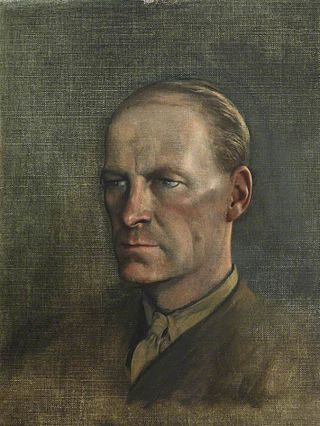Related Research Articles

Sir Karl Raimund Popper was an Austrian–British philosopher, academic and social commentator. One of the 20th century's most influential philosophers of science, Popper is known for his rejection of the classical inductivist views on the scientific method in favour of empirical falsification. According to Popper, a theory in the empirical sciences can never be proven, but it can be falsified, meaning that it can be scrutinised with decisive experiments. Popper was opposed to the classical justificationist account of knowledge, which he replaced with critical rationalism, namely "the first non-justificational philosophy of criticism in the history of philosophy".

Henry Sidgwick was an English utilitarian philosopher and economist. He was the Knightbridge Professor of Moral Philosophy at the University of Cambridge from 1883 until his death, and is best known in philosophy for his utilitarian treatise The Methods of Ethics. He was one of the founders and first president of the Society for Psychical Research and a member of the Metaphysical Society and promoted the higher education of women. His work in economics has also had a lasting influence. In 1875, with Millicent Garrett Fawcett, he co-founded Newnham College, a women-only constituent college of the University of Cambridge. It was the second Cambridge college to admit women, after Girton College. In 1856, Sidgwick joined the Cambridge Apostles intellectual secret society.

Herbert Spencer was an English polymath active as a philosopher, psychologist, biologist, sociologist, and anthropologist. Spencer originated the expression "survival of the fittest", which he coined in Principles of Biology (1864) after reading Charles Darwin's 1859 book On the Origin of Species. The term strongly suggests natural selection, yet Spencer saw evolution as extending into realms of sociology and ethics, so he also supported Lamarckism.

Bernard Bosanquet was an English philosopher and political theorist, and an influential figure on matters of political and social policy in the late 19th and early 20th centuries. His work influenced but was later subject to criticism by many thinkers, notably Bertrand Russell, John Dewey, William James and Ludwig Wittgenstein. Bernard was the husband of Helen Bosanquet, the leader of the Charity Organisation Society.

Gilbert Ryle was a British philosopher, principally known for his critique of Cartesian dualism, for which he coined the phrase "ghost in the machine." He was a representative of the generation of British ordinary language philosophers who shared Ludwig Wittgenstein's approach to philosophical problems.

The American Philosophical Association (APA) is the main professional organization for philosophers in the United States. Founded in 1900, its mission is to promote the exchange of ideas among philosophers, to encourage creative and scholarly activity in philosophy, to facilitate the professional work and teaching of philosophers, and to represent philosophy as a discipline. The APA's governance has included Robert Audi, Jaegwon Kim and Ruth Barcan Marcus.
Psychology is defined as "the scientific study of behavior and mental processes". Philosophical interest in the human mind and behavior dates back to the ancient civilizations of Egypt, Persia, Greece, China, and India.

Rajendra 'Raj' Persaud FRCPsych He is an English consultant psychiatrist, broadcaster and author of books about psychiatry. He is known for raising public awareness of psychiatric and mental health issues in the general media, has published five books and received numerous awards.

Eugene Tovio Gendlin was an American philosopher who developed ways of thinking about and working with living process, the bodily felt sense and the "philosophy of the implicit". Though he had no degree in the field of psychology, his advanced study with Carl Rogers, his longtime practice of psychotherapy and his extensive writings in the field of psychology have made him perhaps better known in that field than in philosophy. He studied under Carl Rogers, the founder of client-centered therapy, at the University of Chicago and received his PhD in philosophy in 1958. Gendlin's theories impacted Rogers' own beliefs and played a role in Rogers' view of psychotherapy. From 1958 to 1963 Gendlin was Research Director at the Wisconsin Psychiatric Institute of the University of Wisconsin. He served as an associate professor in the departments of Philosophy and Comparative Human Development at the University of Chicago from 1964 until 1995.
A mind is the set of cognitive faculties that enables memory, consciousness, perception, thinking and judgement.

Curt John Ducasse was a French-born American philosopher who taught at the University of Washington and Brown University.

MIND is a quarterly peer-reviewed academic journal published by Oxford University Press on behalf of the Mind Association. Having previously published exclusively philosophy in the analytic tradition, it now "aims to take quality to be the sole criterion of publication, with no area of philosophy, no style of philosophy, and no school of philosophy excluded." Its institutional home is shared between the University of Oxford and University College London. It is considered an important resource for studying philosophy.
The Aristotelian Society for the Systematic Study of Philosophy, more generally known as the Aristotelian Society, is a philosophical society in London.
Shaucha literally means purity, cleanliness, and clearness. It refers to purity of mind, speech and body. Shaucha is one of the niyamas of Yoga. It is discussed in many ancient Indian texts such as the Mahabharata and Patanjali's Yoga Sutras. It is a virtue in Hinduism and Jainism. In Hinduism purity is a part of worship and an important quality for salvation. Purity is a mind pure and free of evil thoughts and behaviors.
Robert F. Almeder is Professor Emeritus of Philosophy at Georgia State University. He is known in particular for his work on the philosophy of science, and has also written on the philosophy of mind, epistemology and ethics. He is the author of 24 books, including The Philosophy of Charles S. Peirce (1980), Death and Personal Survival (1992), Harmless Naturalism: The Limits of Science and the Nature of Philosophy (1998), Human Happiness and Morality (2000), and Truth and Skepticism (2010).

John McTaggart Ellis McTaggart was an English idealist metaphysician. For most of his life McTaggart was a fellow and lecturer in philosophy at Trinity College, Cambridge. He was an exponent of the philosophy of Georg Wilhelm Friedrich Hegel and among the most notable of the British idealists. McTaggart is known for "The Unreality of Time" (1908), in which he argues that time is unreal. The work has been widely discussed through the 20th century and into the 21st.
The Grote Chair of the Philosophy of Mind and Logic is an endowed chair at University College London's Department of Philosophy.
This is a list of philosophical literature articles.
David Heron was a Scottish statistician who was president of the Royal Statistical Society from 1947–1949.
Australian philosophy refers to the philosophical tradition of the people of Australia and of its citizens abroad. Academic philosophy has been mostly pursued in universities. It has been broadly in the tradition of Anglo-American analytic philosophy, but has also had representatives of a diverse range of other schools, such as idealism, Catholic neo-scholasticism, Marxism, and continental, feminist and Asian philosophy.
References
- ↑ Preston, Aaron. "Mind Association". In A.C. Grayling; Naomi Goulder; Andrew Pyle (eds.). The Continuum Encyclopedia of British Philosophy. ISBN 9780199754694 . Retrieved 17 January 2013.